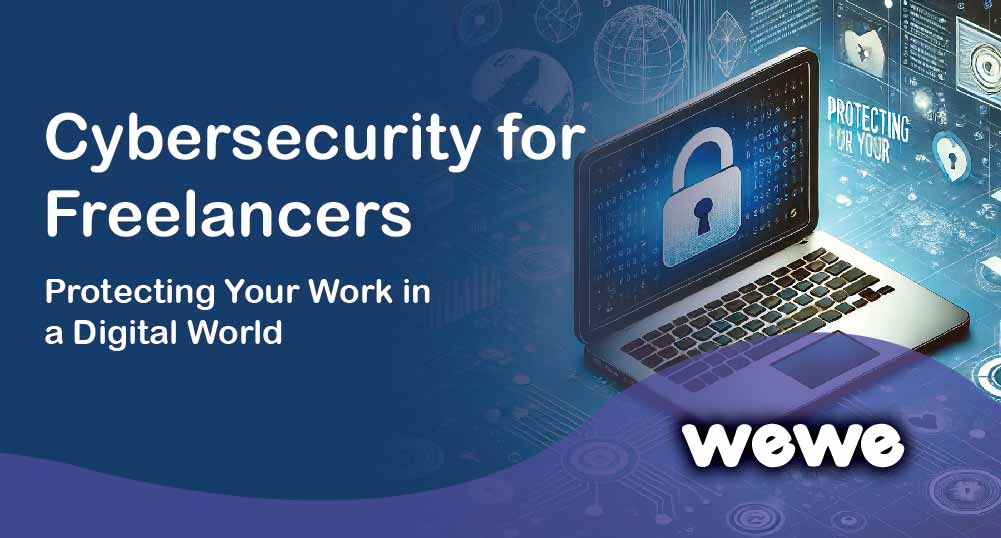
Freelancing has revolutionised the way we work, offering unparalleled freedom and flexibility. However, with this independence comes the critical responsibility of safeguarding your digital workspace. Cybersecurity for freelancers is an indispensable aspect of modern freelancing that ensures your work, data, and personal information remain secure in an increasingly vulnerable online environment.
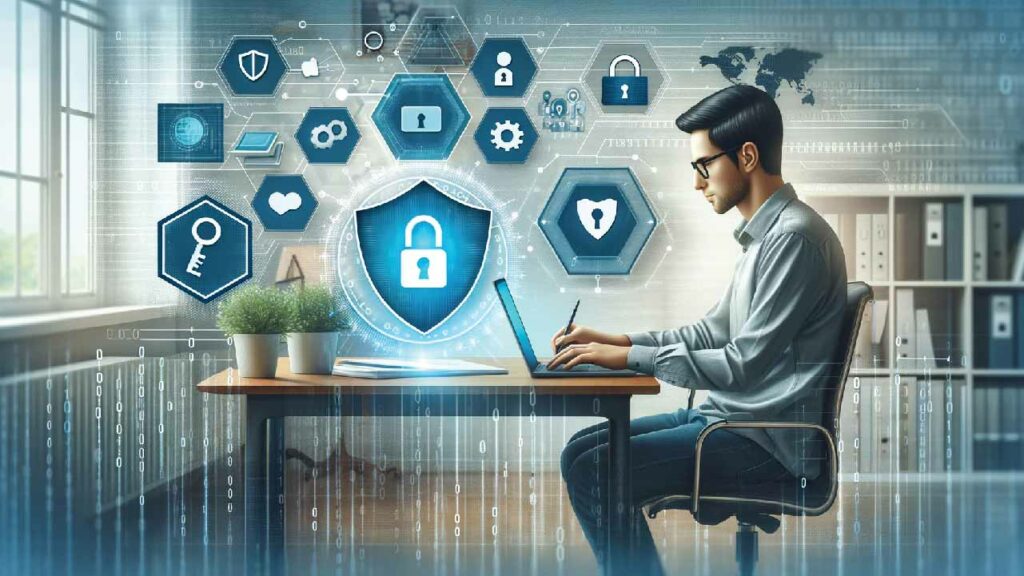
The Importance of Cybersecurity for Freelancers
As a freelancer, you manage all aspects of your business, from client communication to financial transactions. This makes you a prime target for cyberattacks. Understanding the importance of cybersecurity for freelancers is the first step in protecting your digital assets. Without robust cybersecurity measures, you risk exposing sensitive information, losing client trust, and potentially facing significant financial loss.
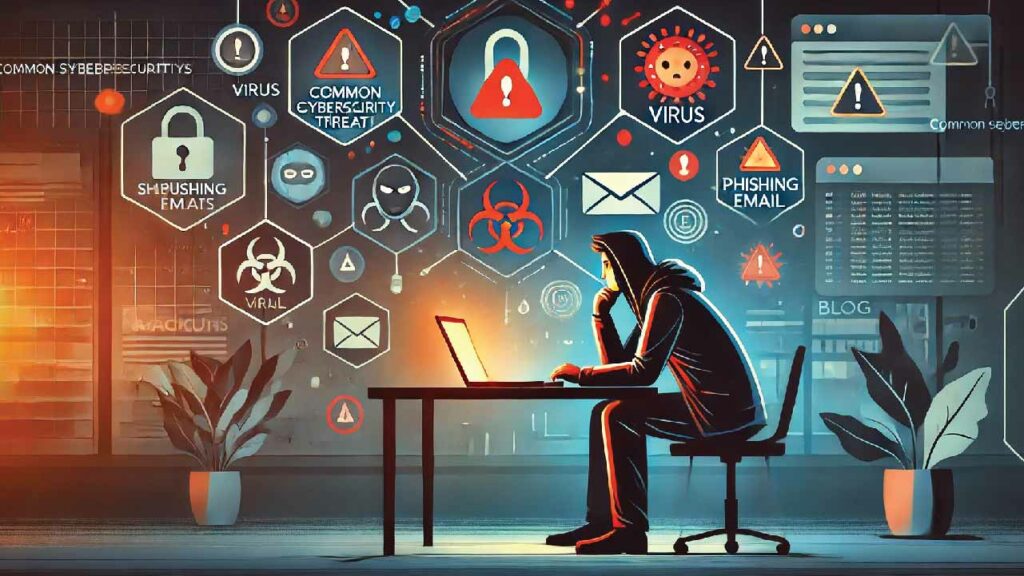
Common Cybersecurity Threats Faced by Freelancers
Freelancers are susceptible to various cybersecurity threats. Knowing these threats is crucial for implementing effective protective measures.
Common Cybersecurity Threats Faced by Freelancers
Phishing attacks involve fraudulent attempts to obtain sensitive information by masquerading as a trustworthy entity. Freelancers often receive emails or messages that appear legitimate but contain malicious links or requests for personal information.
Malware and Ransomware
Malware and ransomware are malicious software designed to damage or control your computer system. Freelancers might inadvertently download these from seemingly harmless sources, leading to data theft or system lockdowns.
Public Wi-Fi Vulnerabilities
Working from cafes, libraries, or other public places is common for freelancers. However, public Wi-Fi networks are notoriously insecure, making it easy for cybercriminals to intercept your data.
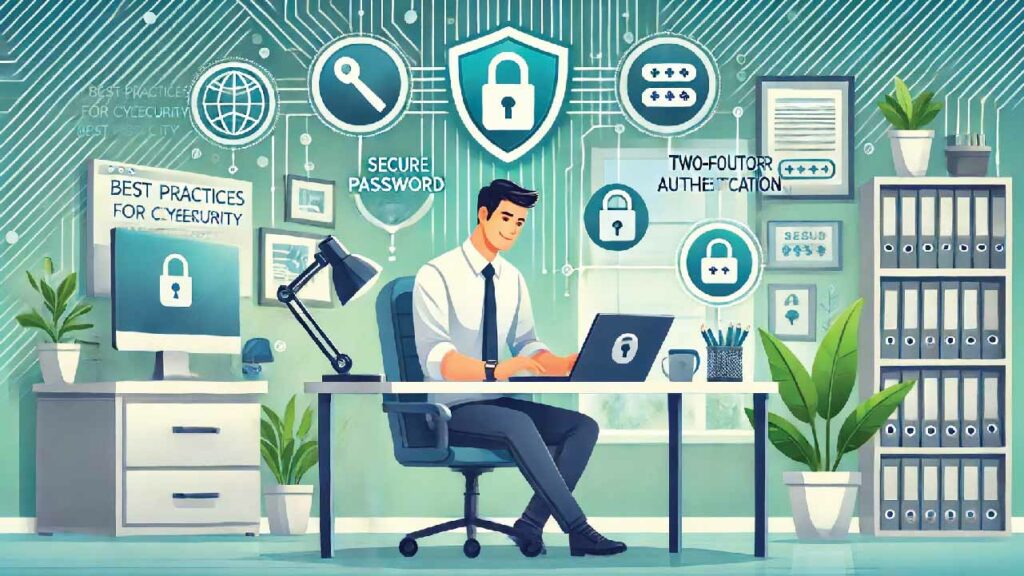
Best Practices for Cybersecurity for Freelancers
To safeguard your freelance business, adopting best practices for cybersecurity is essential. These measures will help you protect your work and maintain your professional integrity.
Use Strong, Unique Passwords
Strong, unique passwords are your first line of defence against unauthorised access. Use a combination of letters, numbers, and special characters, and avoid using the same password across multiple accounts. Consider using a password manager to keep track of your credentials securely.
Enable Two-Factor Authentication (2FA)
Two-factor authentication adds an extra layer of security by requiring a second form of verification in addition to your password. This could be a text message code, a fingerprint scan, or an authentication app. Enabling 2FA significantly reduces the risk of account breaches.
Regularly Update Software and Systems
Software and system updates often include critical security patches. Regularly updating your operating system, applications, and antivirus software ensures you are protected against the latest threats.
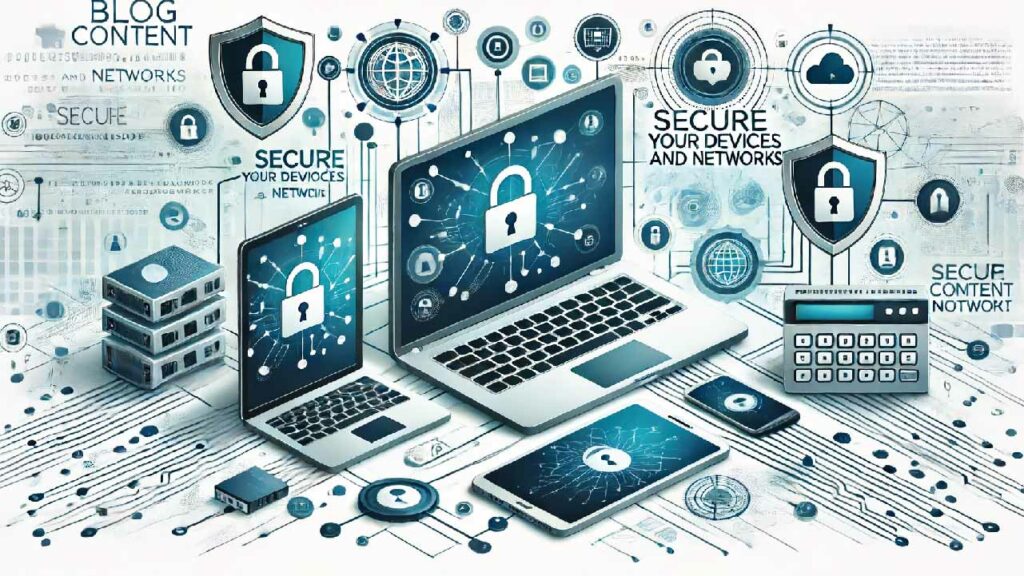
Secure Your Devices and Networks
Securing your devices and networks is another crucial aspect of cybersecurity for freelancers. This involves implementing measures to protect your hardware and ensure your internet connections are secure.
Install Reliable Antivirus Software
Antivirus software detects and removes malicious software from your devices. Choose reputable antivirus software and keep it updated to protect against the latest threats.
Use Virtual Private Networks (VPNs)
A VPN encrypts your internet connection, making it difficult for hackers to intercept your data. When working from public Wi-Fi, always use a VPN to ensure your data remains private and secure.
Encrypt Sensitive Data
Encryption converts your data into a code that can only be accessed with the correct decryption key. Encrypting sensitive data, such as client information and financial records, adds an additional layer of security.
Cybersecurity Awareness and Training
Staying informed about cybersecurity is vital for freelancers. Continuous learning and awareness help you stay ahead of emerging threats and adopt new protective measures.
Stay Informed About Cybersecurity Threats
Regularly reading cybersecurity news and updates keeps you aware of new threats and vulnerabilities. Follow reputable cybersecurity blogs, subscribe to newsletters, and participate in relevant forums.
Take Cybersecurity Training Courses
Numerous online platforms offer cybersecurity training courses tailored for freelancers. These courses provide in-depth knowledge about protecting your digital assets and responding to security incidents effectively.

Protecting Client Information
As a freelancer, you often handle sensitive client information. Protecting this information is not only crucial for maintaining trust but also for complying with legal and contractual obligations.
Implement Data Protection Policies
Establishing clear data protection policies ensures you handle client information securely. These policies should cover data storage, access controls, and procedures for handling data breaches.
Use Secure Communication Channels
When sharing sensitive information with clients, use secure communication channels. Encrypted email services and secure file-sharing platforms help protect the integrity and confidentiality of the information you exchange.
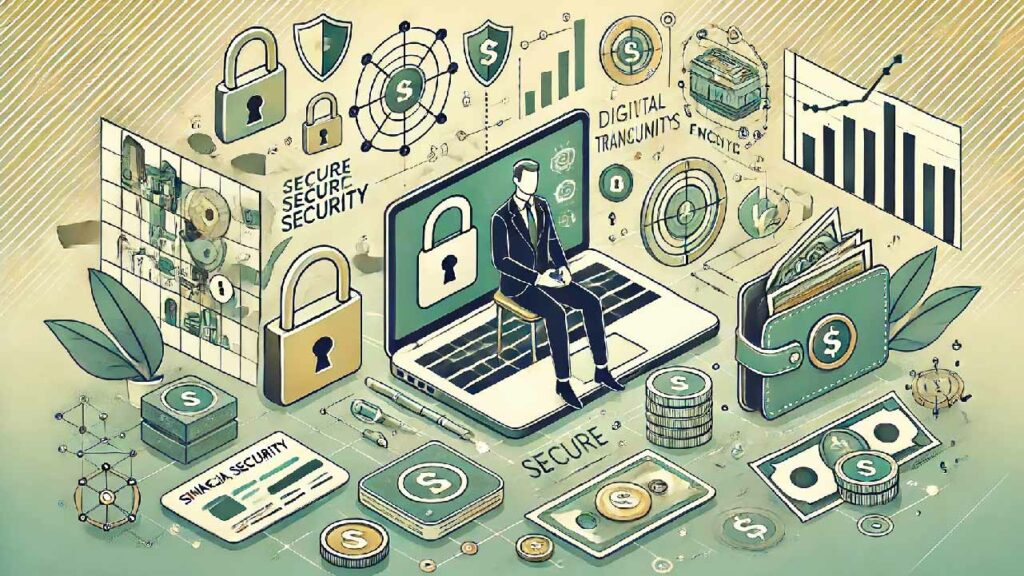
Financial Security Measures for Freelancers
Freelancers manage their finances online, making financial security an essential aspect of cybersecurity. Implementing robust financial security measures helps prevent fraud and unauthorised access to your funds.
Use Secure Payment Platforms
Choose reputable payment platforms with strong security measures for invoicing and receiving payments. Platforms like PayPal, Stripe, and TransferWise offer secure payment processing and fraud protection features.
Monitor Financial Transactions Regularly
Regularly monitoring your financial transactions helps you quickly identify any unauthorised activity. Set up alerts for suspicious transactions and review your account statements frequently.
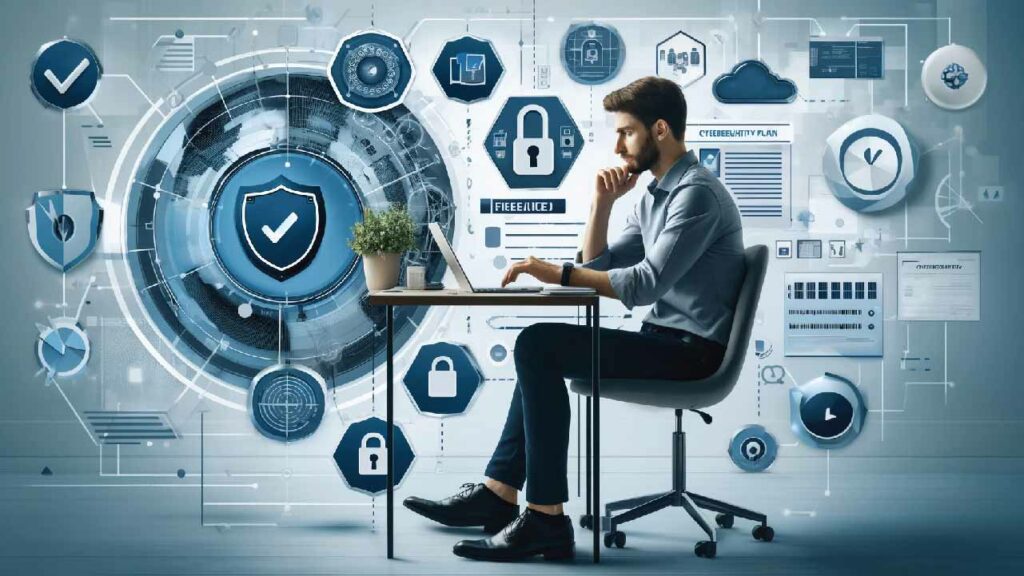
Developing a Cybersecurity Plan
Creating a comprehensive cybersecurity plan is essential for freelancers. This plan should outline the steps you will take to protect your digital assets and respond to security incidents.
Identify Your Assets and Risks
Start by identifying your digital assets, such as client data, financial information, and intellectual property. Assess the potential risks associated with these assets and prioritise your security measures accordingly.
Establish Security Protocols and Procedures
Define clear security protocols and procedures for protecting your assets. These should include guidelines for password management, software updates, data encryption, and incident response.

The Role of Backup in Cybersecurity
Regular backups are a critical component of cybersecurity for freelancers. They ensure you can recover your data in case of a cyberattack or system failure.
Implement Regular Backup Schedules
Schedule regular backups of your important data to external drives or cloud storage. Ensure your backup solutions are reliable and secure.
Test Your Backup and Recovery Processes
Regularly test your backup and recovery processes to ensure they work effectively. This helps you identify and resolve any issues before a real incident occurs.
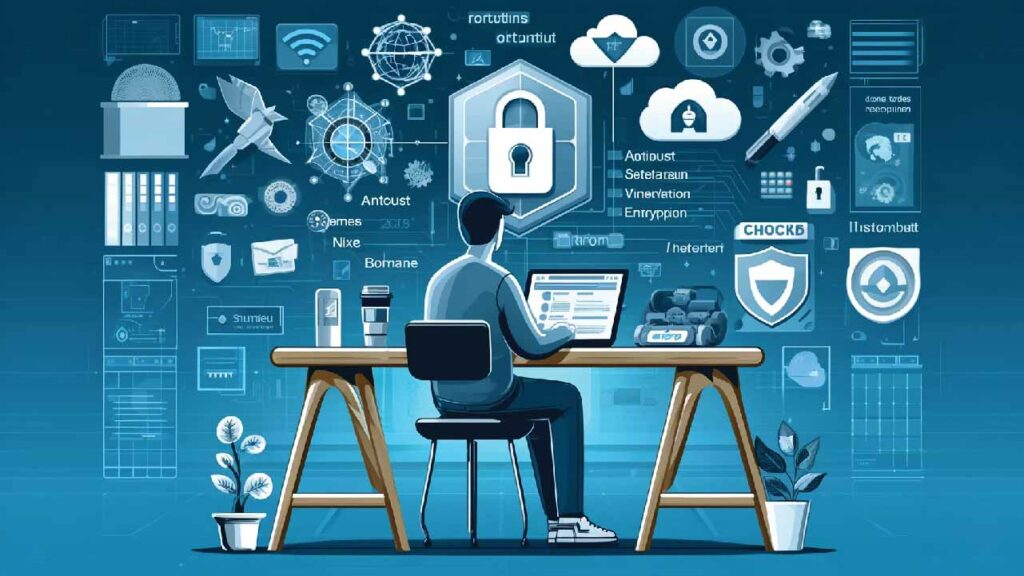
Cybersecurity Tools and Resources for Freelancers
Leveraging cybersecurity tools and resources can significantly enhance your security posture. These tools help automate and streamline your security measures, making it easier to protect your digital assets.
Password Managers
Password managers securely store and manage your passwords, ensuring you use strong and unique credentials for each account. Popular password managers include LastPass, 1Password, and Dashlane.
Cybersecurity Software
Comprehensive cybersecurity software packages offer multiple layers of protection, including antivirus, firewall, and malware detection. Consider using tools like Norton, McAfee, or Bitdefender.
Online Cybersecurity Communities
Joining online cybersecurity communities provides access to valuable resources, advice, and support. Participate in forums like Reddit’s r/cybersecurity or specialised groups on LinkedIn.
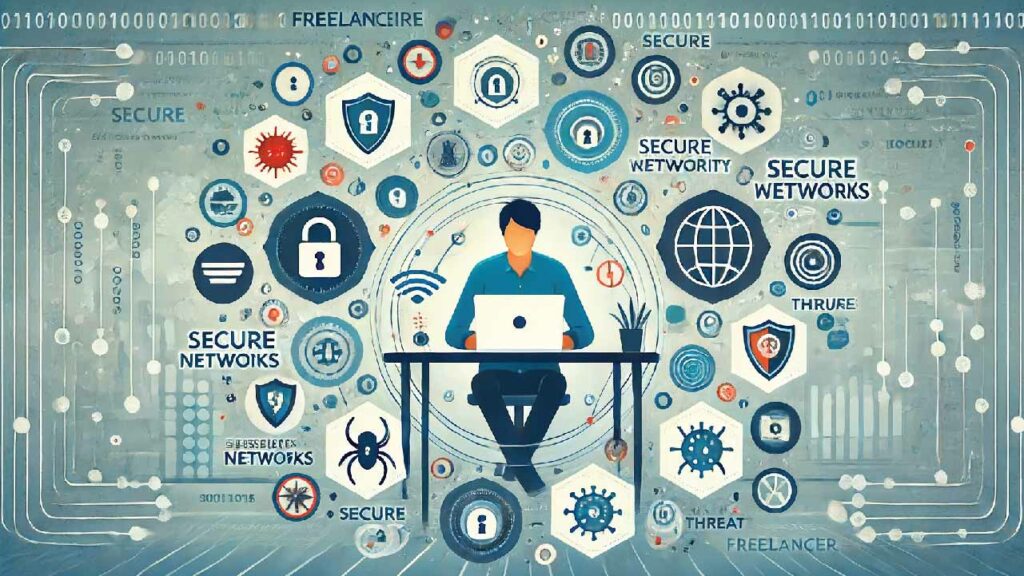
In the digital age, cybersecurity for freelancers is not just an option but a necessity. By understanding the common threats, adopting best practices, securing your devices and networks, and continuously educating yourself, you can protect your work and maintain your professional reputation. Implementing robust cybersecurity measures ensures your freelance business thrives in a secure and trusted environment. Remember, the key to cybersecurity is proactive vigilance—stay informed, stay prepared, and stay secure.
